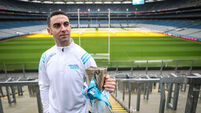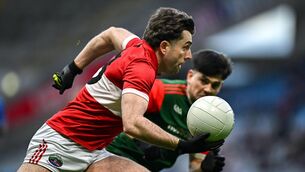Bringing the Eurozone back home
Anyone wandering in off the street to check out was happening in the freezing floodlit foggy ground would have thought they were witness to a minor event, just a few hundred people — relatives and friends of those involved — huddled in the covered stand.
But no, this was not minor. In its own quaint fashion, the GAA has designated the continent of Europe as just another county and last Saturday, in a format designed to suit a setup where some of the clubs are over a 1,000 miles apart, the European County Board (yes, the ECB in short) played out the final event on their annual competitive calendar, with three titles at stake — the Ladies Championship, the Men’s Shield title, and the big one, the Men’s Senior Championship.














